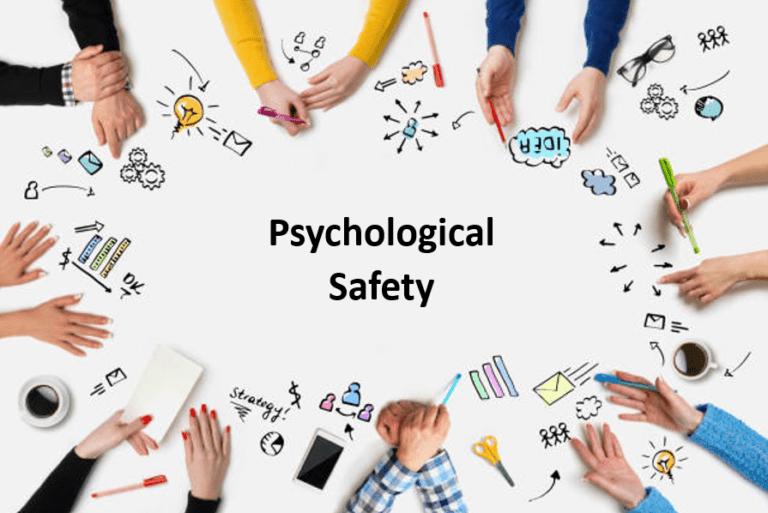Joelle Small
Read all my blogsIn recent decades, we have increasingly started working with diverse teams in projects and organizations. When I refer to diverse teams, I am referring to diversity in the broadest sense: gender, organizational-, cultural- and religious diversity, race, sexuality, personality, age, phase of your life but also working preferences (place and time). All these aspects shape us differently. Therefore, it becomes even more important that, and how, we communicate to each other to have a common understanding.
An essential condition for proper communication is ‘psychological safety’. This term is not something new in organizational business, but it has gained extra attention due to all kinds of environmental changes. In this blog I will explain why I think it is important to focus on psychological safety.

What is psychological safety?
‘A shared belief held by members of a team, that it’s OK to take risks, to express their ideas and concerns, to speak up with questions, and to admit mistakes – all without fear of negative consequences’ (Gallo, 2023).
Psychological safety is a sense of safety and willingness to speak-up. It is something that you feel and experience at individual level, but it co-exists and evolves between people.
For example: when we find ourselves in the middle of a conflict, we often tend to blame or point fingers at others. Psychologists say that this kind of defence-mechanism is a projection of our anxieties or negative characteristics. It represents our own boundaries. As said, psychological safety co-exists between people, so this means that we also need to consider the boundaries of others. And to do so, we need to understand how our own behaviour impacts others.
Why is psychological safety so important?
Providing a psychological safe environment contributes to:
- More engagement – team members are feeling more engaged and motivated because they feel that their contributions matter and that they’re able to speak up without fear of retribution.
- Better decision-making – people feel more comfortable voicing their opinions and concerns, which often leads to a more diverse range of perspectives being heard and considered.
- Foster learning culture – team members feel comfortable sharing their mistakes and learning from them and this is important for a culture of continuous improvement and learning.
How can we nurture psychological safety?
Creating psychological safety is not something that you can do. It is built on the trust that we all accept having an open conversation in relationships, projects and in a company.
- We need to repeat why it is important to speak up. Why it will help you personally, why it will help others and why it is necessary for having successful project outcomes.
- Vulnerability isn’t a bad habit. To admit mistakes, to disagree (openly), to give or receive feedback, you will have to be vulnerable at some time. Vulnerability can feel uncomfortable but that is ok because this is how we learn.
- Actively invite input. To have an open conversation, you also need to ask for input. Each person brings in a unique set of capabilities, experiences, personality, and ambitions. This is a perfect cocktail for creativity and innovation.
- Respond with curiosity. We will not create a psychological safe environment when someone gets shut down after sharing his/her opinion. A better response will be, one with curiosity. Show appreciation for sharing, ask questions. Adopt a learning mindset.
Psychological safety as a key condition for communication will influence group dynamics and helps understanding the full picture of a situation. It is not something to take lightly, but could really provide some benefits when given proper attention to.
Want to know more about this topic? Let’s connect!



